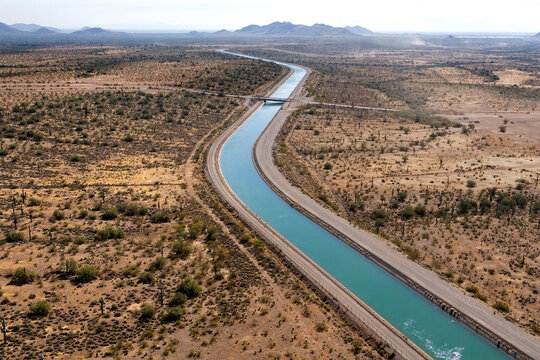
Driving across Texas and Arizona and into the Imperial Valley of southern California in the month of August, in a rundown Dodge Dart with no air-conditioning, was brutal. However, I can’t claim that diminished cognitive capacity due to the weather caused me to jump into an irrigation canal. I could blame the decision on having lived my whole life in the Midwest and the Northeast, where such infrastructure didn’t exist. But to be blunt, it was just a dumb, reckless move.
We understood we were trespassing. But we figured that folks who lived in a region like this must do this all the time, right? Just drive up and take a quick dip?
It wasn’t just me; a buddy and I made the decision together—quite enthusiastically and without qualms. Perhaps this is the standard operating procedure when it comes to reckless decision making: look at the guy next to you and if it seems all right with him, well then, no problem, right?
The guy next to me was Vann—ever since we left Cambridge, Massachusetts, about eight or ten days earlier. We were housemates along with five others in one-half of a duplex back in Cambridge. He and I were each a few years into our adult lives after graduating from Harvard College. Vann and I weren’t under the influence—of anything other than the heat. (And maybe, of our years of Ivy League education.)
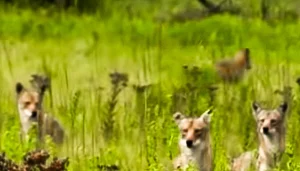 The “night of the coyotes” a few days earlier should have sobered us regarding any over-inflated belief in our knowledge of worldly matters. We had decided to sleep on the ground that night in an area of farms and grasslands near Springfield, Missouri. We began to settle in, lying on some tent pads and sheets on a patch of grass—when we heard some coyotes howl. We waited for the sounds to disappear in the distance, but they came again, louder and maybe a bit closer. “Do coyotes ever attack people?” Vann asked me. “I don’t think so,” I answered, trying to sound diffident. “In other words, you don’t know?” he whispered. I nodded in grudging assent. We gathered up our sheets and pads and resettled ourselves inside the car.
The “night of the coyotes” a few days earlier should have sobered us regarding any over-inflated belief in our knowledge of worldly matters. We had decided to sleep on the ground that night in an area of farms and grasslands near Springfield, Missouri. We began to settle in, lying on some tent pads and sheets on a patch of grass—when we heard some coyotes howl. We waited for the sounds to disappear in the distance, but they came again, louder and maybe a bit closer. “Do coyotes ever attack people?” Vann asked me. “I don’t think so,” I answered, trying to sound diffident. “In other words, you don’t know?” he whispered. I nodded in grudging assent. We gathered up our sheets and pads and resettled ourselves inside the car.
Vann and I were not actually the protagonists of this trip across the country. We were sort of like the hired help; it was the Dodge Dart that was wanted out West. The car belonged to Shelley, Vann’s ex-girlfriend. She had left it behind in Cambridge when she moved, but now that she had arranged a stable place to live in San Diego, she needed It back.
Vann invited me to make the road trip with him as a way of returning the car. Right away, we began thinking of ways to make the trip even more of an adventure. I knew a daycare teacher named Emmy who had gotten married and moved with her new husband to Big Stone Gap, Virginia. Yes, they would be happy to see us and give us a night’s lodging. What about our former housemate, Nancy, who was the girlfriend of Vann’s roommate Peter when she was an undergraduate, but who had later come out as a lesbian and relocated to Austin, Texas and helped start the first women’s bookstore there? Yes: we could crash with her and spend a couple days there; she would take us to visit that feminist bookstore and also the Armadillo World Headquarters. We would also make a courtesy stop in New Jersey to visit Vann’s mother and father: it would make an easy destination on our very first day on the road. Finally, I contacted another set of former Cambridge housemates—Patty and Marco—and arranged to stay with them in Mexico City after we delivered the car to San Diego. They had moved there for Marco to work on his Master’s degree, and she said they would be delighted to receive me and act as tour guides for four or five days. I would arrange to fly back to Boston from there. (Vann would be staying in San Diego for some extra days and then flying back separately.)
Our inauspicious arrival in Big Stone Gap the second day on the road should have forewarned us that this “great American road trip” trip would include some unplanned pitfalls mixed in with the pleasures. We parked near where we thought Emmy and Matthew lived. It was a cul-de-sac in a rural area, with only a few homes. I was happy to see a middle-aged man walking nearby; neighbors in these parts, I figured, would be bound to know each other. But when I asked him if he knew which of the nearby houses was that of Emmy and Matthew, he looked puzzled. He pronounced their names, slowly. “Emmy. Matthew.” He looked at us and said their names again, more quizzically. “Emmy? Matthew?” “Yes—do you know them?”
“Most folks around here,” he said, knitting his brow,” “are named Bill or Charlie.” He made direct eye contact and then let that sink in for about 20 seconds. And then he marched on, showing no sympathy or traditional Appalachian hospitality. We did eventually find our friends, and they were gracious hosts. They were settling right into the local craft scene of weavers, potters, and makers and players of hammered dulcimers. If there were local folk who regarded them as outsidersl with foreign-sounding names, they were blithely oblivious to it.
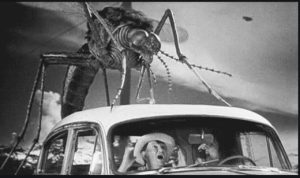 Heading west and south from Virginia, we faced one challenge worse than either an unfriendly dude in the neighborhood or the howling of nearby coyotes. We had pulled over at a rest stop in Arkansas to sleep in the car one night. Vann grew up in Tennessee and I grew up in Indiana, but when we opened our windows to get some ventilation, we encountered a stream of mosquitoes far larger than either of us had ever laid eyes on. With the windows rolled securely back up, though, we were suffocating. I pretended to be asleep in the back seat, so as not to disturb Vann in the front seat. But he was doing the same, and at some point, one of us spoke and we realized neither of us could sleep at all. We tried again with the windows cracked open just an inch—but immediately, in came the mosquitoes. We tried it again with the windows closed but after a while, we decided to just drive along through the night, taking it slow and using conversation as our stimulant.
Heading west and south from Virginia, we faced one challenge worse than either an unfriendly dude in the neighborhood or the howling of nearby coyotes. We had pulled over at a rest stop in Arkansas to sleep in the car one night. Vann grew up in Tennessee and I grew up in Indiana, but when we opened our windows to get some ventilation, we encountered a stream of mosquitoes far larger than either of us had ever laid eyes on. With the windows rolled securely back up, though, we were suffocating. I pretended to be asleep in the back seat, so as not to disturb Vann in the front seat. But he was doing the same, and at some point, one of us spoke and we realized neither of us could sleep at all. We tried again with the windows cracked open just an inch—but immediately, in came the mosquitoes. We tried it again with the windows closed but after a while, we decided to just drive along through the night, taking it slow and using conversation as our stimulant.
Here in the Imperial Valley, we were facing stifling heat again, but at least there were no mosquitoes. In a town in which we had stopped in Arizona to grab a sandwich, a clock on one public building displayed 103 degrees. It hadn’t fallen below the mid-90s since we left Austin.
The possibility of a plunge into fresh cold water seemed to both Vann and me like an almost divinely inspired idea.
Like millions of American kids in the 1950s, I was introduced to irrigation canals through 16 mm films shown during social studies time in my elementary school classrooms. In central Indiana schools, the third-grade curriculum exposed us to the Grand Coulee Dam, Florida’s orange groves and smelting pots, Wyoming’s cattle ranches and slaughterhouses, the U.S. National Park system, and the great agricultural developments of southern California. Along with the colorful fruit orchards and the vegetables ripening on the vine in that region came the imagery of pristine blue-green waters, running from a river somewhere far away, for many miles across dry lands, to nourish those farms and fields. The irrigation canal that Vann and I approached in the Dodge Dart looked just as modern and gleaming and pristine as the ones depicted in one of those long-ago films. But did the man doing the hushed voiceover in the film ever mention that irrigation canals have a current? Not that I recollected.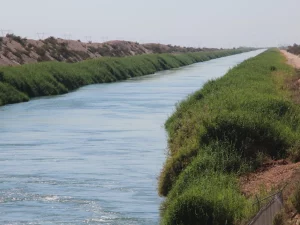 We had seen a road sign indicating there were irrigation canals nearby; otherwise, we had no reason to get off the highway. Cool, clear, clean water: it seemed as good as a dream. (Reading now about the water in irrigation canals, I know it was a fantasy: the water in these canals, untreated from the Colorado River, was not potable, not suitable for swimming, full of all kinds of toxins.)
We had seen a road sign indicating there were irrigation canals nearby; otherwise, we had no reason to get off the highway. Cool, clear, clean water: it seemed as good as a dream. (Reading now about the water in irrigation canals, I know it was a fantasy: the water in these canals, untreated from the Colorado River, was not potable, not suitable for swimming, full of all kinds of toxins.)
After getting off the road, we took the turn marked with the name of a farm. This was no doubt where we would find the water. As we progressed, the landscaping became more manicured. We could see fenced and nicely plowed fields. We passed two or three signs warning us to stay off the property.; we understood we were trespassing. But we figured that folks who lived in a region like this must do this all the time, right? Just drive up and take a quick dip? We weren’t planning to stay more than a few minutes.
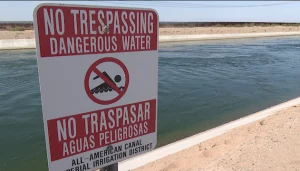 We meandered along an increasingly narrow road and parked just 100 feet from what looked like a clear, cold stream of incredibly refreshing water. It was right there before us, unimpeded by a fence or other barrier. We would immerse ourselves just long enough to get suitably cooled off. And then we’d be on our way. And not feeling the heat, at least for a little while.
We meandered along an increasingly narrow road and parked just 100 feet from what looked like a clear, cold stream of incredibly refreshing water. It was right there before us, unimpeded by a fence or other barrier. We would immerse ourselves just long enough to get suitably cooled off. And then we’d be on our way. And not feeling the heat, at least for a little while.
I shed my clothes on the bank of the irrigation canal, leaving on my underpants. I’m not sure what accounted for the unnecessary modesty. A few days earlier in Austin, Nancy had invited us to join her for the closing celebration of her softball season, in which all the teams joined in a picnic at a state park, followed by a swim in one of Austin’s many lakes. Nancy had lent us towels and told us not to worry about having no bathing suits with us. None of the “girls on the team” would be bringing swimsuits either.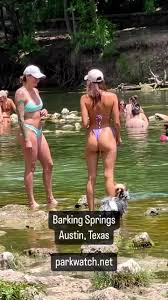
She was right. After enjoying some food and beverages, some of the ball players began to pile their clothes wherever they were sitting and head into the water. Nancy had made a point of bringing us around and introducing us to her teammates and friends from other teams during the picnic, so that our presence would come as no unwanted surprise. No one else had brought any male guests, so we were glad she was thinking pro-actively on our behalf. A fair number of the ball players looked like they could kick our asses if they had so desired. We did our best to not take up more of their space than required. The women were mostly in their 20s, like Vann and Nancy and me, but some ranged well into middle age. The body types also varied greatly; baseball and softball having never been sports like soccer or tennis where nearly every player was a perfect specimen of fitness.
We left our clothes near our picnic cloth and stepped toward the edge of the lake. No one was actually swimming; they were just standing around in water up to their thighs or waists, splashing water on themselves, and chatting.
I hadn’t devised a strategy for achieving success in this situation, but I quickly adopted the idea of scanning the scene without letting my gaze rest much on any one ball player. When I found my attention almost stubbornly lingering on a specific specimen—I mean, woman–I attempted to constrain my thoughts within the framework of this being a sports-related gathering.
That Greek-looking beauty with long brown hair and the bronzed, muscular shoulders: I’m thinking she must be a good hitter. A skinny blonde with a ponytail had the look of a pitcher. I’ll bet that brunette—the one with the boy’s haircut, petite compact body and small, perky breasts—is a fast runner. I pegged her as an infielder and guessed that she might be the leadoff hitter on her team. I continued my observations and internal ruminations, but I concentrated on one central message to myself: don’t look too closely. And do not get excited.
I tried to think of conversational topics, and I worked my way up to ask one woman, “What position do you play?” But when she answered, “usually shortstop,” I couldn’t think of what to say next, so I said nothing. If these were the members of an orchestra, and she played the cello, I could say something like, “I’ve always loved the sound of the cello.” But what can you say about really liking what shortstops do that wouldn’t sound creepy?
I did ask a couple of the women, “How was your season?” The first one said “fine” and moved on. The next one said, “It was a fantastic season; I met a lot of great dykes.” I didn’t know how to respond to that, so I moved on.
The most interesting conversation was one I overheard, where two women were acknowledging that they had each developed a serious crush on the same pitcher—from another team. “But damned her—she’s straight!” one of them said. “Yeah, I thought for a while that was just a line she was using to hold out on me. But she really is straight.” “Yeah, she doesn’t know what she’s missing!”
The whole afternoon went swimmingly. Nancy told me and Vann later she felt proud that she had male friends she could invite to a mostly lesbian, mostly naked picnic and trust that they would not do or say anything to besmirch her reputation in the Austin women’s community.
Here I was, a couple days later and several hundred miles farther on the route to San Diego. There were no naked shortstops or pitchers around.
As Vann was still undressing, I plunged in first—halfway between a jump and a dive and boy did it feel good. It was every bit as refreshing as I had hoped. Good enough to almost forget all those hours of driving in unbearable heat. Just a few strokes got me out to the middle of what was probably no more than a 20- to 25-foot canal. I watched for Vann to join me, but I immediately realized he was no longer there on the bank I had just left. Or rather, I was no longer across from that bank, as there was a current that was pushing me rapidly downstream. There was current!
I can’t determine which irrigation station I was attempting to bathe in, but the data from the Imperial Irrigation District, easily obtainable online, shows that water flows anywhere from 370 cubic feet per second, up to 2200 cubic feet per second. I have no context for truly grasping what those numbers mean in terms of the force on your body if you submerge yourself in that channel, but I find it traumatic even to read those data. At the time, I had an instant realization: Get the hell out!
Beyond eighth grade track and ninth grade tennis, I was never an athlete. But I was always reasonably fit and strong. I started to swim back toward the side, fully confident I would make the few yards easily. I didn’t. After five or six strokes, I was still in the very middle, and now I was 40 feet downstream from Vann. I put my head in the water and decided to muster all the strength in my arms and legs, kicking my hardest and doing the crawl stroke with full force toward the bank. I didn’t count, but I think it took about 20 strokes at my hardest tempo. But I did succeed in covering the short distance, while still moving further downstream. I grasped the bank, perhaps 25 or 30 yards from where I began. Vann wisely took his dip adjacent to the bank and never ventured even an arm’s length away. I stumbled up on my feet and toward him and then collapsed, cooled off but exhausted.
In writing this story, I found the following under the Frequently Asked Questions, posted by the Imperial Irrigation District:
Canals are dangerous and should not be used for any recreational activity. Even if the surface water appears smooth and calm, there are many areas where the current can swiftly pull an individual under—especially a child.
Vann had to do the driving for the rest of that day and evening. I was physically exhausted and emotionally and mentally depleted. I don’t even remember any of the details of the remainder of the road trip to San Diego. My vivid and detailed recollections end with my extricating myself from that potentially deadly adventure. They resume in full color and detail a few days later, after my arrival in Mexico City.
I can draw two lessons from this experience:
- Don’t make any decisions based on information you acquired in third grade social studies.
- Danger arrives without warning, sometimes disguised as a cool and refreshing balm.
Dale Borman Fink retired in 2020 from Massachusetts College of Liberal Arts in North Adams, MA, where he taught courses related to research methods, early childhood education, special education, and children’s literature. Prior to that he was involved in childcare, after-school care, and support for the families of children with disabilities. Among his books are Making a Place for Kids with Disabilities (2000) Control the Climate, Not the Children: Discipline in School Age Care (1995), and a children’s book, Mr. Silver and Mrs. Gold (1980). In 2018, he edited a volume of his father's recollections, called SHOPKEEPER'S SON.


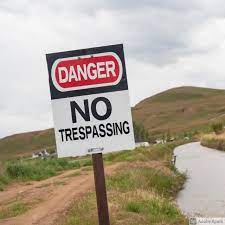

“…it was the Dodge Dart that was wanted out West.”
Another great story, Dale, so well crafted and told. I want to read it again. Your phrasing and syntax inspire me!
Maybe that’s what I should have said to some of those clothes-free ball players: hey, I am really enjoying your syntax,.
But seriously, I appreciate the literary comment.
That was indeed a saga! You managed to include all sorts of adventures that are both vivid and oh, so evocative of those times–and still integrated the story of the irrigation canal so that it flowed (sorry, couldn’t resist) throughout the saga, maintaining the suspense throughout. So glad you let us know you were posting this. Unforgettable memories for sure.
I’m glad you like the way I maintained the suspense and the water motif (and the flow). I’ve been working more in recent Retro pieces on controlling time sequences, going forward and back in my narratives, foreshadowing certain events and then flashing back to earlier times, etc. .
Thanx Dale for the story of your foolhardy dip in that irrigation canal.! I can’t relate to that adventure, but one summer on a French language immersion trip to France with my Alliance Francaise teacher and 3 other students we happened upon a lovely lake. Dozens of French families were swimming and our teacher suggested we stop and take a swim. When we regretted we couldn’t because we had no bathing suits, she said , “Ici la France.”.
So, feeling very French, we took off our clothes and went swimming.
Dana,, did you purposely use the term “immersion” as you introduced that anecdote? Or did the double entendre just “flow” from your keyboard as you recalled those long ago days and entered your French mind/space? Oh la la!
Touche Dale, for catching that double entendre!
Great story, Dale! I was wondering where the danger was going to come from. The coyotes? The mosquitoes? The unfriendly guy in Virginia? But swimming in the irrigation ditch — that was truly scary even though I knew you had obviously survived. What a dangerous deed for sure! Perfect for the prompt!
I also loved the details about Nancy and the softball players in Austin, especially because I know Nancy, who was a classmate of mine!
I’m glad you recognized Nancy. It was fun to live with her in Cambridge as she was shedding her “het” identity and finding a new one, and then go see her a year or two later in her new environment. I suspect the memory of our visit, and the picnic, didn’t imprint itself on her as much as on Vann and me.
So many adventures along the way, Dale! I love the way you describe your nude picnic/swim with Nancy and her softball teammates in Austin and the mental gymnastics you went through to not be intrusive and to not get excited! And the praise you got from her later for both.
You offered great foreshadowing before you took the plunge into the irrigation canal. We sensed that all would NOT be OK, even though the water looked calm and inviting. You kept posting those “Danger, Keep Out” signs (and noted they often contain toxic run-off now). Undertow is, indeed, deathly dangerous. I had a young friend on Martha’s Vineyard who was almost swept away and wrote a piece about his incident for the Vineyard Gazette. It is both exhausting, and of course, your adrenaline is flowing, which further depletes you, just as you described. So happy that you survived to share this tale with us!
I’m so glad you approved of the way I described the picnic with the (sometimes naked) softball players. I wanted to paint that picture without resorting to stereotyping or demeaning anyone, or for that matter, making it titillating. It took a few drafts.
Thanks also for mentioning the foreshadowing. as It’s something I’ve been working on increasingly in my stories.